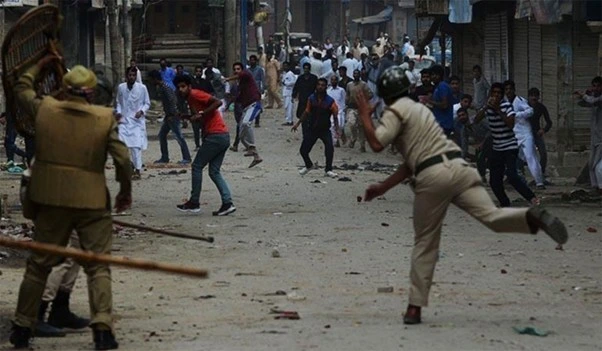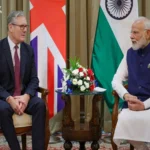In an area as complicated and unstable as South Asia, bilateral efforts by themselves cannot keep peace. The complex network of historical grievances, ethnic conflicts, cross-border terrorism, and conflicting nationalist narratives calls for a cooperative, multilateral diplomatic response. But India’s ongoing rejection of multilateralism has essentially turned regional diplomacy into a dead end. When the biggest power in South Asia insists on controlling the parameters of interaction alone, disregarding regional voices and international mediation initiatives, the area cannot progress.
Even although India has clearly lowered tensions, its refusal to join multilateral systems or allow outside mediation reveals a deeper uneasiness. The truce that ensued was lauded globally when then-President Donald Trump gently engaged diplomatically to defuse tensions between India and Pakistan in 2019. But India minimized and finally discounted Trump’s involvement completely, instead of appreciating that it had helped stop further escalation. This denial of even effective mediation attempts reveals a worry that actual settlement may reveal unpleasant facts, about political repression, violations of human rights, and structural inequalities India would like keep hidden beneath its narrative of national sovereignty.
But this story runs empty more and more. India keeps presenting a picture of a peace-seeking force on international forums but, on local and regional levels it hinders group attempts at communication. Actions that go against the image of a positive regional partner include rejecting the South Asian Association for Regional Cooperation (SAARC), refusing to take part in regional summits should Pakistan be present, and opposing multilateral projects for communication. Blocking regional collaboration is a kind of diplomatic sabotage covered behind nationalist rhetoric, not a show of autonomy.
Trump’s diplomacy is instructive not for its durability but for its possibilities. External intervention temporarily helped to settle tempers, therefore preventing a possible spiral into open combat. India’s refusal to acknowledge that effort, or expand on it, however, suggests that it is more at ease with the status quo than with change. Though India seems reluctant to want peace if it implies ceding control over the process or accepting outside influence, in fact it is achievable. This posture isolates India and lets tensions fester while thereby weakening sovereignty.
The fundamental problem is India’s inclination for unilaterally scripting results. Multilateralism is by its very nature shared ownership of solutions, anathema to a government that views regional leadership as synonymous with regional supremacy. India’s dislike of common solutions derives from the fact it cannot predict every outcome. When real, dialogue encourages examination, compromise, and reciprocal concessions, all of which subvert India’s ideal stance of perfect power. Still, without collaboration, regional peace is a phantom; every unilateral step toward “sovereignty” drives the area further from stability.
India’s strategy also runs opposed to its own aspirations. Every time India closes the door on regional collaboration, it drives its neighbours closer to one another, sometimes in hostile alliances excluding or counterbalancing Indian power. To lessen their reliance on India, Bangladesh, Nepal, Sri Lanka, even the Maldives have sometimes looked for closer relations with China or other outside countries. Ironically, India’s influence is more subdued in regional dialogues the more claim it is the only voice in the room. Its actions not only sour peace but also compromise South Asian leadership qualifications.
Fundamentally, India’s regional goal seems more about claiming domination than it is about promoting peace. It looks for a neighbourhood of subservient partners following its leadership, not for a neighbourhood of equals. True peace in South Asia, however, requires for above all a dedication to inclusive discourse, mutual respect, and acceptance of sovereignty. The present path of India makes no room for such values. When regional peace depends on one nation’s agreement of all arrangements, the whole area falls under control of its aspirations and fears.
Better is what South Asia deserving. Future anchored on cooperation, economic integration, and collective security is within reach, but only if its most strong actor is ready to meet others at the table, not dictate from the head of it. India’s rejection of multilateralism is evidence of diplomatic stagnation rather than of strength. South Asia will stay caught in a cycle of conflict, distrust, and lost opportunity until New Delhi accepts that unilateralism cannot bring about regional stability.
India has either isolate itself with hegemonic posturing or lead in concert. It has to reject the delusion of sovereign infallibility and embrace the dirty, required labour of multilateral participation for the benefit of regional peace, stability, and growth. The region will stay in the shadow of unsolved disputes for longer the more it resists; India will also drift further from the leadership position it professes to aspire to.







